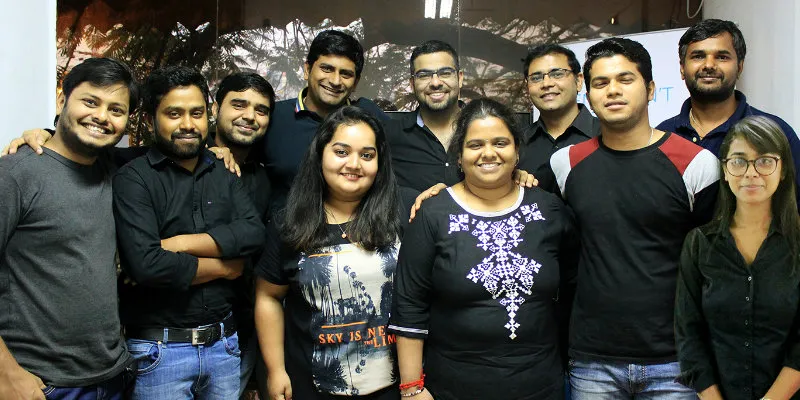This startup has built a device that turns smartphone into an ovulation tracker
The company's Inito Fertility Monitor measures two key fertility hormones in urine to suggest the most fertile time in a woman's menstrual cycle.
Twenty-seven-year-old Aayush Rai has been a hardcore techie from a very young age. He led the team from India that won the International Space Settlement Design Competition at NASA. He even headed the robotics and electronics club at his alma mater, IIT Roorkee.
While working at Siemens Technology India as a research engineer, Aayush met 33-year-old Varun AV, an IIT Madras alumnus with more than 25 patents at Siemens. Although Varun left the job in late 2012 to work as a technology consultant, the pair remained in touch.
Being good friends, their discussions would inevitably veer towards their shared passion — addressing tech problems. In January 2014, Aayush left Siemens to join Varun. The collaboration resulted in Samplytics Technologies. Together, they invented an imaging technology called the flat lens.

However, owing to slow progress, they were unable to pursue their dream of licensing the product to a biometrics company. They then redirected their energies towards building a medical device called Inito in January 2015, which lets users test for diabetes, cholesterol, infections, and hormones on the smartphone. With Inito attached to it, the smartphone automatically turns into an ovulation tracker.
Inito Fertility Monitor is a device that measures two key fertility hormones in urine and predicts a woman's most fertile days based on test results. It is designed to understand the body and hormone levels, giving accurate predictions with each passing month. Says Aayush,
“While the Inito platform can do all these tests on a single device by just changing the strip, as a startup it is hard to launch all the tests at the same time. We just launched our first test which is an ovulation tracker targeted at couples trying to get pregnant. It suggests the most fertile time in a woman’s menstrual cycle where the chance of conception is the highest by measuring two fertility hormones (luteinizing hormone and oestrogen) in urine. We have four pending patents on our tech at the moment.”
The product not only detects the rise in luteinizing hormone (LH) but also measures the level of oestrogen — which rises days before the LH surge — to identify up to six fertile days per cycle. The Inito app remembers the cycles to suggest the most fertile days.
Inito has won the CII Design Excellence Award 2016 in both the healthcare category and industrial design.
Most test strips are colorimetric in nature. They change colour in a particular spectrum depending on the concentration of the biomarker you are trying to measure. Their optics allows one to capture a calibrated image of the strip using the phone’s camera, and the image processing algorithms do the processing partly on the phone and partly on the cloud.
As all the data gets stored on the cloud, the analytics algorithms look at that data and suggest actionable insights based on the test values. The startup currently has close to 50 users. The price of the device is Rs 3,699 and Rs 1,000 for a pack of eight strips.
Adding muscle to the arms
The duo’s strong Siemens network made the process of raising investment easier, and Anand Mecheri and Rajeev Mecheri came on board. Says Aayush,
While we were figuring out licensing versus building a healthcare product out of our tech, Anand and Rajeev were instrumental in helping us pivot from licensing to building our own product. They also invested very early on even without any clarity on what the product and business model would be.”
The startup has a team of 11 full-time and five part-time employees (a mixture of hardware engineers, software engineers, algorithm and biotech specialists). They will add more tests to the platform like complications during pregnancy, diabetes, kidney function, heart health, and cholesterol in the next 24 months.
The fertility testing device market is poised to grow at a CAGR of 7.5 percent globally and reach $216.8 million by 2020, according to a report by MarketsandMarkets. The market is essentially categorised into ovulation prediction kits and fertility monitors. Factors like accurate results even in women suffering from PCOS, rising number of promotional activities undertaken by companies, the inflow of low-cost generic products, increasing advances in fertility monitors, and the large population base affected with infertility across the globe are stimulating the growth of the fertility monitors market.







